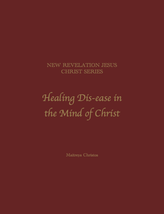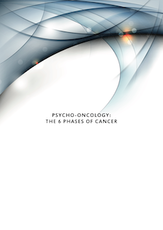Psycho-Oncology: Discover How Stress Causes Cancer
Phase 1 of Cancer: Inescapable Shock
Phase 2 of Cancer: Adrenaline Depletion
Phase 3 of Cancer: The Cancer Fungus
Phase 4 of Cancer: Niacin Deficiency
Phase 5 of Cancer: Vitamin C Depletion
Phase 6 of Cancer: Immune Suppression
COMPLICATED GRIEF: A COMMON CAUSE OF CANCER
There are two types of grief; one is the ordinary grief, where the individual allows themselves to go through the grieving process and understands loss is a natural part of life. The other is "complicated grief", where the individual has attached themselves so acutely to the object of loss, that they cannot fathom or understand the loss, and experience "inescapable shock" or acute psycho-emotional trauma. This prolonged psycho-emotional stress, over months and years, depletes all-important adrenaline reserves, breaking the cell's Krebs' Citric Acid Cycle, causing normal cells to mutate into cancer cells. The individual experiencing "complicated grief" is also unable to enter the deep sleep cycle where melatonin is produced in the pineal gland between the hours of 1am and 3am. And this is the crucial factor, for melatonin is the primary hormone responsible for inhibiting cancer cell growth. "Complicated grief" is thus recognized as one of the leading psycho-emotional causal factors in the genesis of cancer.
WORLDWIDE STUDIES LINK COMPLICATED GRIEF TO CANCER
1. A landmark study conducted by Aarhus University of Denmark found children born in Sweden and Denmark between 1968 and 2007 had a 10% greater chance of developing childhood cancer if they experienced the loss of a close relative. "All live-born children born in Denmark between 1968 and 2007 (n=2 729 308) and in Sweden between 1973 and 2006 (n=3 395 166) were included in this study. A total of 1 505 938 (24.5%) children experienced bereavement at some point during their childhood and 9823 were diagnosed with cancer before the age of 15 years. The exposed children had a small (10%) increased risk of childhood cancer." [http://www.ncbi.nlm.gov/pmc/articles/PMC3664350/]
2. In a study conducted by the World Health Organization, 6284 Jewish Israelis who lost an adult son in the Yom Kippur War or in an accident between 1970 and 1977 were followed over a 20 year period to compare the incidence of cancer in the bereaved group compared to non-bereaved members of the population. "There was an increased incidence of lymphatic and hematopoietic malignancies, among parents of accident victims and among war-bereaved parents, as well as for melanomas. Accident-bereaved parents also had an increased risk of respiratory (lung) cancer." [http://www.ncbi.nlm.nih.gov/pubmed/11029995]
3. 1,088 women with cancer were seen over a 4.5 year period at the Cancer Centre of the Greek Social Security Department in Athens, Greece. "The authors present their results as far as psychological stress influences the development of cancer of the breast in 813 patients (Group A) and in 685 women who did not have cancer of the breast (Group B). They were able to show that Group A had a positive correlation which was statistically very significant with the following parameters: the death of a much-loved person; the negative behaviour of the husband; an unexpected change in life style; continual conflicts in the family; financial problems; unsatisfactory sex life; consultations with a psychiatrist and allergy. The authors conclude that they believe it is useful to look at all the factors that are known as risks for cancer of the breast, including the influence of psycho-traumatic factors". [http://www.ncbi.nlm.nih.gov/pubmed/3819354]
4. The University of Helsinki, Finland conducted a study of 10,808 women to discover whether stressful life events preceded the onset of cancer. "The authors prospectively investigated the relation between stressful life events and risk of breast cancer among 10,808 women from the Finnish Twin Cohort. Life events and breast cancer risk factors were assessed by self-administered questionnaire in 1981. A national modification of a standardized life event inventory was used, examining accumulation of life events and individual life events and placing emphasis on the 5 years preceding completion of the questionnaire. Through record linkage with the Finnish Cancer Registry, 180 incident cases of breast cancer were identified in the cohort between 1982 and 1996. Independently of total life events, - divorce/separation, death of a husband, and death of a close relative or friend were all associated with increased risk of breast cancer. The findings suggest a role for life events in breast cancer etiology through hormonal or other mechanisms." [http://www.ncbi.nlm.nih.gov/pubmed/12615606]
5. In a ground-breaking study conducted by the Department of Psychiatry, Yale University School of Medicine, researchers found complicated traumatic grief measured at 6 months after the loss of a spouse predicted a physical health event such as cancer for the widow/widower 2 years later. "Ninety-two future widows and 58 future widowers were interviewed at the time of their spouse's hospital admission and then at 6 weeks, 6, 13 and 25 month follow-ups. RESULTS: Three distinct symptom clusters (i.e. traumatic grief, depressive and anxiety symptoms) were found to emerge for both widows and widowers. Widows had higher mean levels of traumatic grief, depressive and anxiety symptoms. High symptom levels of traumatic grief measured at 6 months predicted a physical health event (e.g. cancer, heart attack) at 25 months post-intake for widows." [http://www.ncbi.nlm.nih.gov/pubmed/10218927]
6. In a similar study conducted by the Department of Psychiatry, University of Pittsburgh School of Medicine, researchers found bereaved spouses experiencing complicated grief had a higher incidence of cancer. "The aim of this study was to confirm and extend the authors' previous work indicating that symptoms of traumatic grief are predictors of future physical and mental health outcomes. The study group consisted of 150 future widows and widowers interviewed at the time of their spouse's hospital admission and at 6-week and 6-, 13-, and 25- month follow-ups. Traumatic grief was measured with a modified version of the Grief Measurement Scale. Survival and regression analyses indicated that the presence of traumatic grief symptoms approximately 6 months after the death of the spouse predicted such negative health outcomes as cancer, heart trouble, high blood pressure, suicidal ideation, and changes in eating habits at 13- or 25-month follow-up." [http://www.ncbi.nlm.nih.gov/pubmed/9137115]
7. "Traumatic grief symptoms seldom diminish after the second half of the first year following loss. Symptoms may actually increase as time goes on. Subjects with traumatic grief are at increased risk of developing cancer and other illnesses. Should grief remain unresolved, this vulnerability becomes part of the individual’s nervous system, hardwired, so to speak, in the neurochemical substrate." [The National Psychologist - Newspaper for Psychologists] [http://nationalpsychologist.com/page/7?s=support+therapy]
8. "The strong link between sleep and the immune system suggests that disrupted sleep following bereavement can indirectly affect health by suppressing the immune system. The relationship between bereavement and sleep has generated great interest among researchers as a factor in increased psychiatric and medical conditions and mortality (death)." [American Psychological Association]
9. "Grief impairs both the function of white blood cells processed in the thymus gland - and of natural killer (NK) cells which are responsible for attacking viruses and destroying tumour cells. Suppressed grief results in a weakening of the immune system by reducing the function of cells that defend against viral infections and tumours and which helps keep the body healthy." [University of Miami School of Medicine]
10. A new study has found that learned helplessness, a key component of complicated grief, is a strong developmental factor of cancer. Researcher Madelon Visintainer took three groups of rats, one receiving mild escapable shock, another group receiving mild in-escapable shock, and the third no shock at all. She then implanted each rat with cancer cells that would normally result in 50% of the rats developing a tumour. Her results were astonishing: Within a month, 54% of the rats not shocked at all had rejected the tumour; this was the normal ratio. As for the rats that mastered shock by pressing a bar to turn it off, 63% had rejected the tumour. But only 27% of the helpless rats, the rats that had experienced in-escapable shock, rejected the tumour. This study demonstrates those who feel there is no way out of their shock / loss are less likely to be able to reject tumours forming within their body, due to high levels of stress weakening the immune system. [http://www.ncbi.nlm.nih.gov/pubmed/7200261]
2. In a study conducted by the World Health Organization, 6284 Jewish Israelis who lost an adult son in the Yom Kippur War or in an accident between 1970 and 1977 were followed over a 20 year period to compare the incidence of cancer in the bereaved group compared to non-bereaved members of the population. "There was an increased incidence of lymphatic and hematopoietic malignancies, among parents of accident victims and among war-bereaved parents, as well as for melanomas. Accident-bereaved parents also had an increased risk of respiratory (lung) cancer." [http://www.ncbi.nlm.nih.gov/pubmed/11029995]
3. 1,088 women with cancer were seen over a 4.5 year period at the Cancer Centre of the Greek Social Security Department in Athens, Greece. "The authors present their results as far as psychological stress influences the development of cancer of the breast in 813 patients (Group A) and in 685 women who did not have cancer of the breast (Group B). They were able to show that Group A had a positive correlation which was statistically very significant with the following parameters: the death of a much-loved person; the negative behaviour of the husband; an unexpected change in life style; continual conflicts in the family; financial problems; unsatisfactory sex life; consultations with a psychiatrist and allergy. The authors conclude that they believe it is useful to look at all the factors that are known as risks for cancer of the breast, including the influence of psycho-traumatic factors". [http://www.ncbi.nlm.nih.gov/pubmed/3819354]
4. The University of Helsinki, Finland conducted a study of 10,808 women to discover whether stressful life events preceded the onset of cancer. "The authors prospectively investigated the relation between stressful life events and risk of breast cancer among 10,808 women from the Finnish Twin Cohort. Life events and breast cancer risk factors were assessed by self-administered questionnaire in 1981. A national modification of a standardized life event inventory was used, examining accumulation of life events and individual life events and placing emphasis on the 5 years preceding completion of the questionnaire. Through record linkage with the Finnish Cancer Registry, 180 incident cases of breast cancer were identified in the cohort between 1982 and 1996. Independently of total life events, - divorce/separation, death of a husband, and death of a close relative or friend were all associated with increased risk of breast cancer. The findings suggest a role for life events in breast cancer etiology through hormonal or other mechanisms." [http://www.ncbi.nlm.nih.gov/pubmed/12615606]
5. In a ground-breaking study conducted by the Department of Psychiatry, Yale University School of Medicine, researchers found complicated traumatic grief measured at 6 months after the loss of a spouse predicted a physical health event such as cancer for the widow/widower 2 years later. "Ninety-two future widows and 58 future widowers were interviewed at the time of their spouse's hospital admission and then at 6 weeks, 6, 13 and 25 month follow-ups. RESULTS: Three distinct symptom clusters (i.e. traumatic grief, depressive and anxiety symptoms) were found to emerge for both widows and widowers. Widows had higher mean levels of traumatic grief, depressive and anxiety symptoms. High symptom levels of traumatic grief measured at 6 months predicted a physical health event (e.g. cancer, heart attack) at 25 months post-intake for widows." [http://www.ncbi.nlm.nih.gov/pubmed/10218927]
6. In a similar study conducted by the Department of Psychiatry, University of Pittsburgh School of Medicine, researchers found bereaved spouses experiencing complicated grief had a higher incidence of cancer. "The aim of this study was to confirm and extend the authors' previous work indicating that symptoms of traumatic grief are predictors of future physical and mental health outcomes. The study group consisted of 150 future widows and widowers interviewed at the time of their spouse's hospital admission and at 6-week and 6-, 13-, and 25- month follow-ups. Traumatic grief was measured with a modified version of the Grief Measurement Scale. Survival and regression analyses indicated that the presence of traumatic grief symptoms approximately 6 months after the death of the spouse predicted such negative health outcomes as cancer, heart trouble, high blood pressure, suicidal ideation, and changes in eating habits at 13- or 25-month follow-up." [http://www.ncbi.nlm.nih.gov/pubmed/9137115]
7. "Traumatic grief symptoms seldom diminish after the second half of the first year following loss. Symptoms may actually increase as time goes on. Subjects with traumatic grief are at increased risk of developing cancer and other illnesses. Should grief remain unresolved, this vulnerability becomes part of the individual’s nervous system, hardwired, so to speak, in the neurochemical substrate." [The National Psychologist - Newspaper for Psychologists] [http://nationalpsychologist.com/page/7?s=support+therapy]
8. "The strong link between sleep and the immune system suggests that disrupted sleep following bereavement can indirectly affect health by suppressing the immune system. The relationship between bereavement and sleep has generated great interest among researchers as a factor in increased psychiatric and medical conditions and mortality (death)." [American Psychological Association]
9. "Grief impairs both the function of white blood cells processed in the thymus gland - and of natural killer (NK) cells which are responsible for attacking viruses and destroying tumour cells. Suppressed grief results in a weakening of the immune system by reducing the function of cells that defend against viral infections and tumours and which helps keep the body healthy." [University of Miami School of Medicine]
10. A new study has found that learned helplessness, a key component of complicated grief, is a strong developmental factor of cancer. Researcher Madelon Visintainer took three groups of rats, one receiving mild escapable shock, another group receiving mild in-escapable shock, and the third no shock at all. She then implanted each rat with cancer cells that would normally result in 50% of the rats developing a tumour. Her results were astonishing: Within a month, 54% of the rats not shocked at all had rejected the tumour; this was the normal ratio. As for the rats that mastered shock by pressing a bar to turn it off, 63% had rejected the tumour. But only 27% of the helpless rats, the rats that had experienced in-escapable shock, rejected the tumour. This study demonstrates those who feel there is no way out of their shock / loss are less likely to be able to reject tumours forming within their body, due to high levels of stress weakening the immune system. [http://www.ncbi.nlm.nih.gov/pubmed/7200261]





